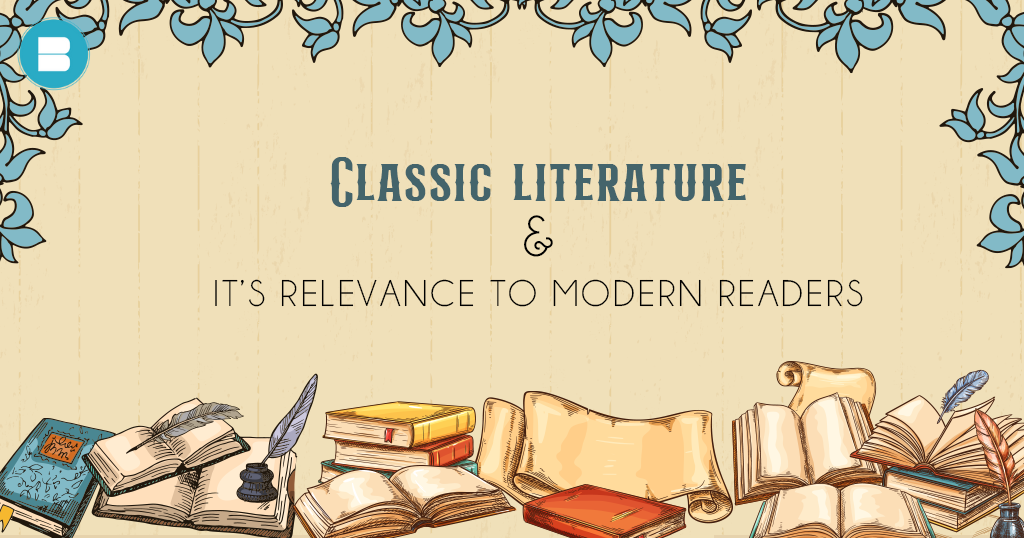
This article delves into the characteristics of classic literature, its enduring relevance, and the reasons why these works continue to captivate audiences today.
Characteristics of Classic Literature

1. Universal Themes
Classic literature often addresses themes that are relevant to all human experiences.
- Love and Loss: Many classics explore the complexities of love, including romantic, familial, and platonic relationships, as well as the pain of loss.
- Morality and Ethics: Questions of right and wrong, justice, and personal integrity are central to many classic texts, prompting readers to reflect on their own values.
2. Complex Characters
The characters in classic literature are often multifaceted, reflecting the complexity of real human beings.
- Flawed Protagonists: Many classic works feature protagonists with significant flaws, making them relatable and realistic. This complexity invites readers to empathize with their struggles.
- Dynamic Relationships: The interactions between characters often highlight social, cultural, and personal conflicts, enriching the narrative and deepening character development.
3. Timeless Language and Style
The language and style of classic literature can vary widely, yet many share a distinctive quality that contributes to their lasting appeal.
- Rich Imagery: Classic texts often employ vivid imagery and symbolism, allowing readers to engage with the narrative on multiple levels.
- Innovative Narrative Techniques: Many classics introduce unique narrative structures or styles that influence subsequent literary works, showcasing the evolution of literature.
Enduring Relevance of Classic Literature
1. Reflection of Human Nature
Classic literature provides insights into human nature that remain relevant across time and cultures.
- Exploration of Identity: Themes of identity, belonging, and self-discovery resonate with readers, prompting introspection and personal reflection.
- Social Commentary: Many classics critique societal norms and injustices, encouraging readers to consider their own contexts and the world around them.
2. Educational Value
Classic literature is often included in educational curricula due to its rich content and thematic depth.
- Critical Thinking: Analyzing classic texts fosters critical thinking skills, as students engage with complex ideas and diverse interpretations.
- Cultural Literacy: Understanding classic literature enhances cultural literacy, providing context for references and allusions found in contemporary works and popular culture.
3. Emotional Connection
The emotional depth of classic literature allows readers to form lasting connections with the text.
- Empathy and Understanding: Engaging with the struggles and triumphs of characters fosters empathy, helping readers understand diverse perspectives and experiences.
- Timeless Narratives: The emotional resonance of classic stories often transcends time, allowing readers to connect with characters and themes on a personal level.
Notable Examples of Classic Literature
1. “Pride and Prejudice” by Jane Austen
- Themes: Explores love, class, and societal expectations through the lens of Elizabeth Bennet and Mr. Darcy’s evolving relationship.
- Relevance: The novel’s commentary on social norms and personal growth continues to resonate with contemporary readers.
2. “Moby-Dick” by Herman Melville
- Themes: Delves into obsession, revenge, and the struggle against nature through Captain Ahab’s pursuit of the elusive whale.
- Relevance: The exploration of humanity’s relationship with nature and the consequences of obsession remains pertinent today.
3. “1984” by George Orwell
- Themes: A dystopian exploration of totalitarianism, surveillance, and individual freedom.
- Relevance: The novel’s warnings about government overreach and the erosion of personal liberties resonate in contemporary discussions about privacy and power.
The Impact of Classic Literature on Modern Works
1. Influence on Contemporary Authors
Many modern authors draw inspiration from classic literature, reinterpreting themes and styles for new audiences.
- Intertextuality: References to classic works in modern literature create a dialogue between texts, enriching the reading experience.
- Reimagined Narratives: Contemporary retellings of classic stories allow for fresh perspectives and cultural relevance, engaging new generations of readers.
2. Adaptations in Film and Media
Classic literature frequently inspires adaptations in film, television, and theater, bringing these stories to wider audiences.
- Cinematic Interpretations: Film adaptations of classic novels often introduce the stories to viewers who may not read the original texts, sparking interest in the literature itself.
- Cultural Relevance: Modern adaptations can highlight contemporary issues, making classic stories accessible and relevant to current audiences.
Conclusion
Classic literature endures because it speaks to the fundamental aspects of the human experience. Through universal themes, complex characters, and rich language, these works continue to captivate readers, providing insights into society, morality, and the self. As we engage with classic texts, we not only honor their legacy but also enrich our understanding of the world knowledge and our place within it.
In an ever-changing cultural landscape, classic literature remains a vital source of wisdom, reflection, and connection, proving that great storytelling transcends time and continues to shape our lives.
Read Also About Medical literature encompasses a vast body of published works that inform and guide the healthcare industry, ranging from research studies and clinical trials to reviews and case reports.







